Kurt Gänzl
Operetta Research Center
20 February, 2019
The Operetta Research Centre was, this week, undergoing technical maintenance, in the course of which supremo Kevin Clarke came up with some odd statistics. One of these was the listing of the three most frequently asked questions on Google with regard to “operetta”. Would I like to answer them?
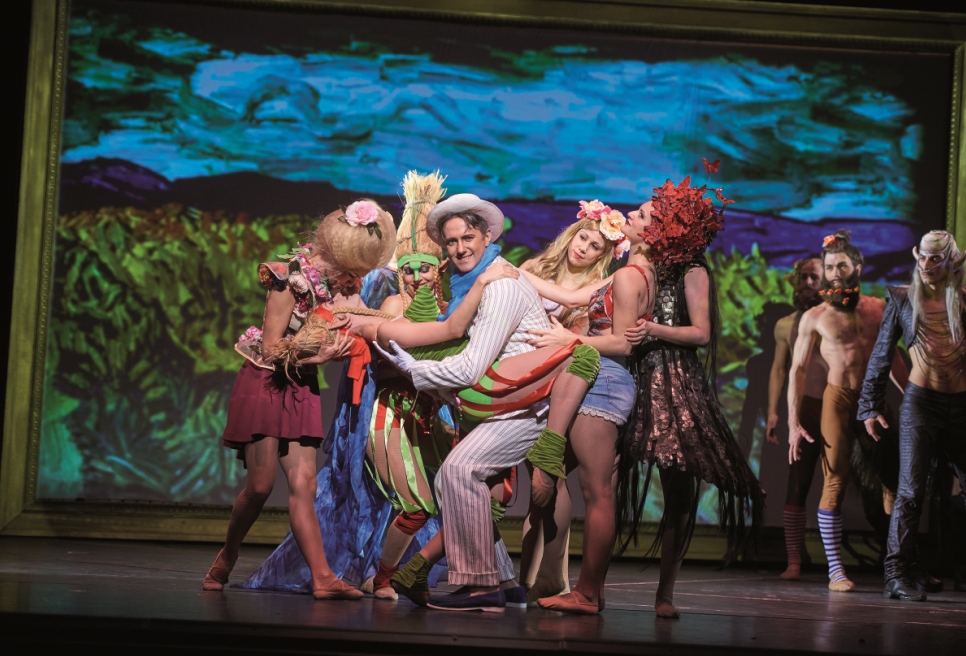
Radolslaw Rydewski as Pluto in “Orpheus in der Unterwelt,” at the Staatsoperette Dresden. (Photo: Stephan Floß)
Sure. If it’s facts, no one better to answer than elderly musical-theatre-drenched I.
Now, I wonder what these questions will be? Comparison of the two endings of Der Bettelstudent? The relationship of Fledermaus, Lustige Witwe and companions to the French comic theatre?
Oh no, Google users are much, much more basic than that.
Apparently they want to know: (1) What is Operetta? (2) Is The Phantom of the Opéra an operetta? (3) Are the works of Gilbert and Sullivan opera or operetta?
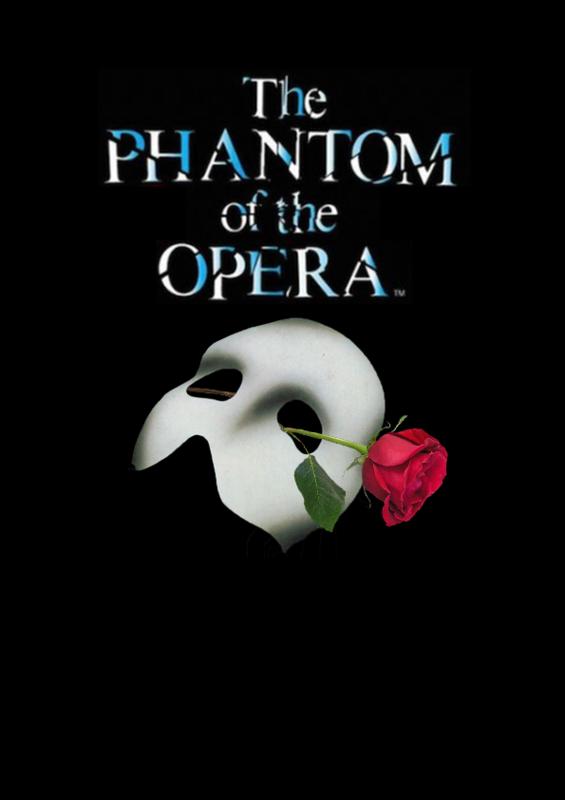
The official art work for Andrew Lloyd Webber’s “The Phantom of the Opera.” (Really Useful Group)
OK. (2) and (3) are largely pendant on the answer to (1) which is the 64,000 florin question.
A few years ago, I was invited to take part in a symposium in Wooster at the Ohio Light Opera festival. I’m not usually asked to such ‘do’s, as I’m not a PhD, only an MA (Latin, hons), I don’t use footnotes, or any kind of notes, wouldn’t know how to use a powerpoint presentation et al. I just talk. And prefer dialogue to a lecture.
But I proposed as my topic for Ohio ‘What Is Operetta?’ and I set the ball rolling with some bare-boned history.
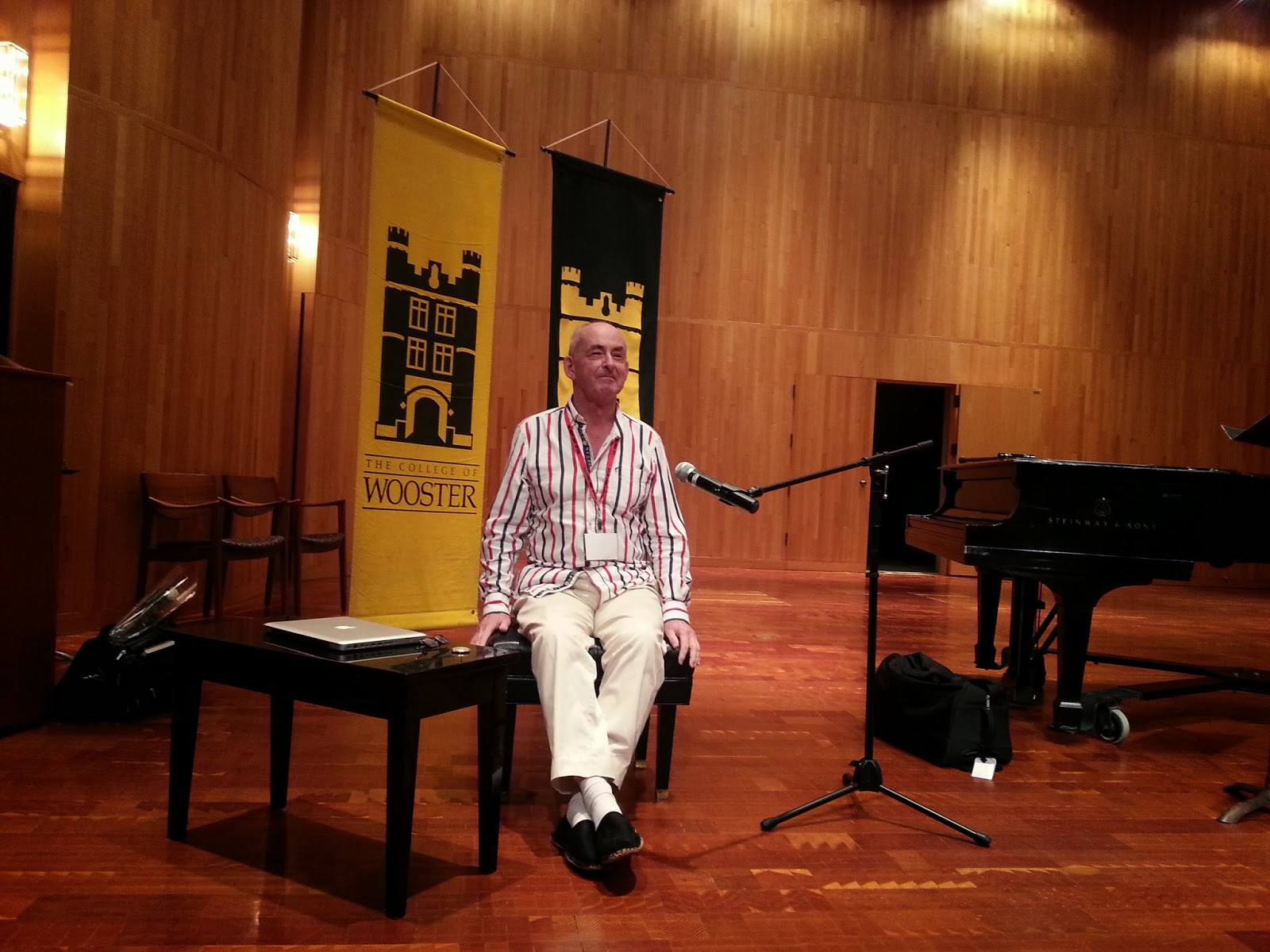
Kurt Ganzl delivering a talk on “What is operetta?” at the Ohio Light Opera in 2014. (Photo: Kevin Clarke)
It didn’t really go down very well.
We sort of drivelled down, audience-participation-wise, to ‘is such and such a show an operetta’? And that in spite of Dr. Clarke’s efforts, from the audience, to get a more definitive kind of discussion going.
So … here I go again!

Sheet music cover for Offenbach’s “Ba-Ta-Clan.”
What is ‘operetta’. The word, note, is in English, so we are not talking about Operett, Opérette, Opereta et al. Are we? Or are we?
Here’s my short answer. The word ‘operetta’ (and its national variants) has meant different things, in different places, at different times.
For example, in the British and French early 19th century, it meant exactly what it said. A little opera. With spoken dialogue. A handful of characters (regulated by law).
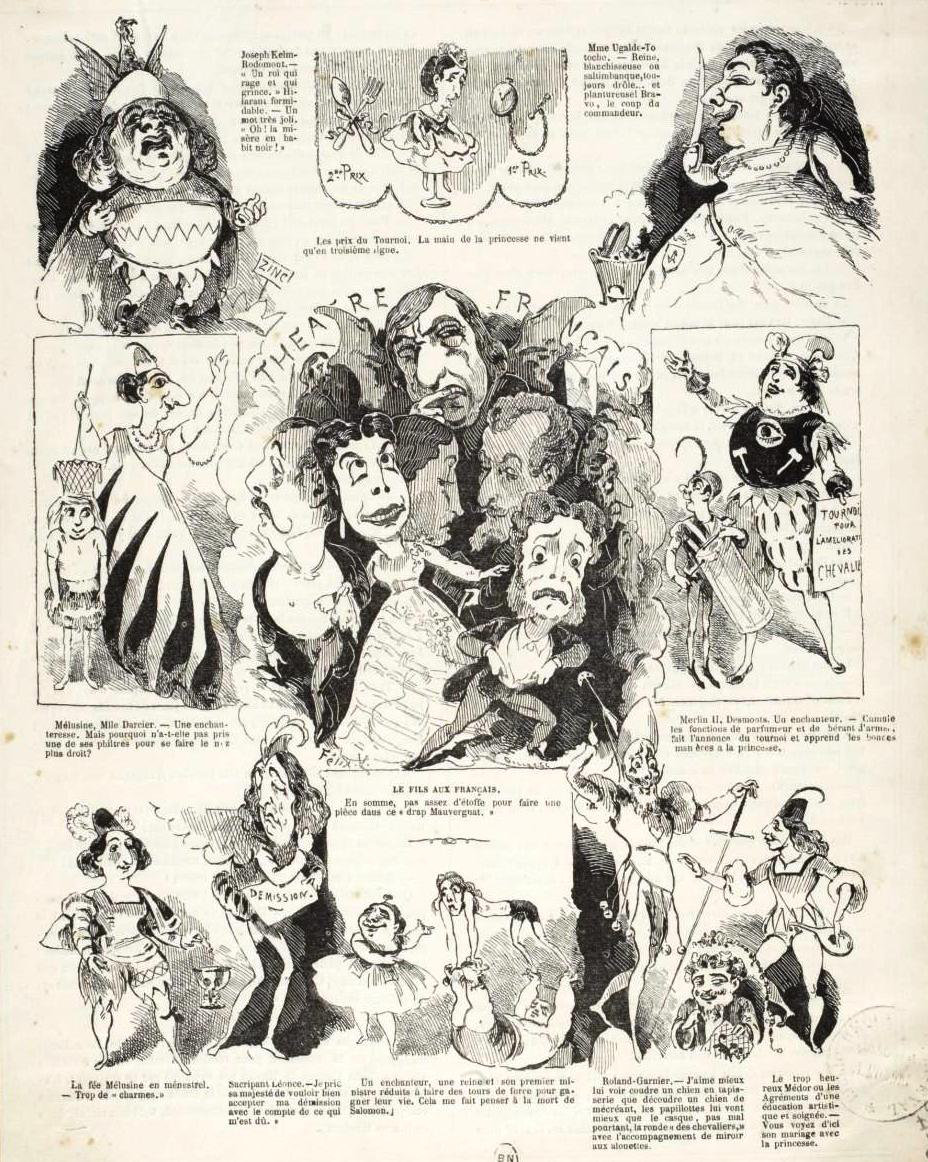
A cartoon with scenes from Hervé’s “Les Chevaliers de la Table Ronde.” (Photo: Palazzetto Bru Zane)
You can follow the use of the word through the years, and I’m sure some eager University scholar has done so, but really it is of little worth.
Linguistics. Semantics. Whatever.
So, what does it mean today?
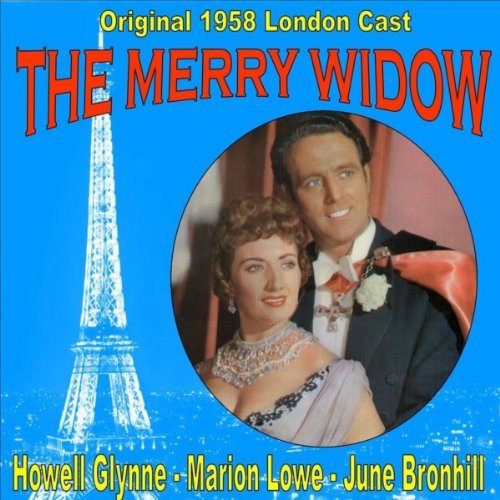
LP cover for the 1958 London production of “The Merry Widow” starring June Bronhill.
That’s easy. The word ‘operetta’ has come to mean the product of the central European stage from the later part of the 19th century to the Second World War.
No, British, French and American writers and composers are not included, although I’ll allow the French their ‘opérette’ which was always so, so thirdly to their ‘comédie musicale’ and ‘vaudeville’.
Short answer finished. Whatever ‘operetta’ was, now, to the world, it is central European musical theatre 1870-1940. After which it died.

John Gilbert as Prince Danilo with the can-can girls in “The Merry Widow,” 1925. (Photo: Archive Operetta Research Center)
Segue to Phantom of the Opéra.
Perleeeeeease. An operetta? Why?
It’s a splendid musical (that’s what these things are called nowadays) which happens to have some superb operatic burlesque sections and the most wonderful sextet of modern times … the word ‘operetta’ nowadays shrieks ‘not modern’. Spangles and tulle. So, answer: no.
G&S. Ah, my beloved G&S.
Well, if we have to categorise them … They are neither opera nor operetta.
No, we don’t need a little box for everything. Their works were categorised at their time as ‘comic opera’. ‘Comic’ of course, not meaning funny-haha (will folk erase than misconception), but spoken dialogue with music and songs. They were originally encouraged by the opéra-bouffes of France … and there is the greatest story of all.
G&S … well, their works are just G&S.
I said brief. Here’s brief.
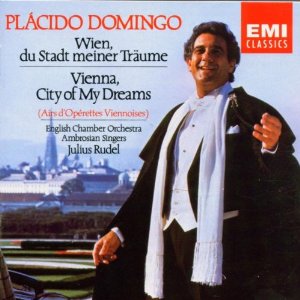
This is what opera tenors singing operetta albums looked like one generation earlier: Placido Domingo’s “Vienna, City of My Dreams” (EMI).
Wow!
Amazingly brief for me!

When Marcel Prawy wanted to introduce Kiss me, kate to Vienna, protests erupted: Vienna is Operetta- not musiclas.
Today, My Fair Lady, Kiss me kate, and many other works are what you decide to call them.
Basically, there are only two categories today: Pop culture and the other is of course Mozart.
I love your Website, congratulations !